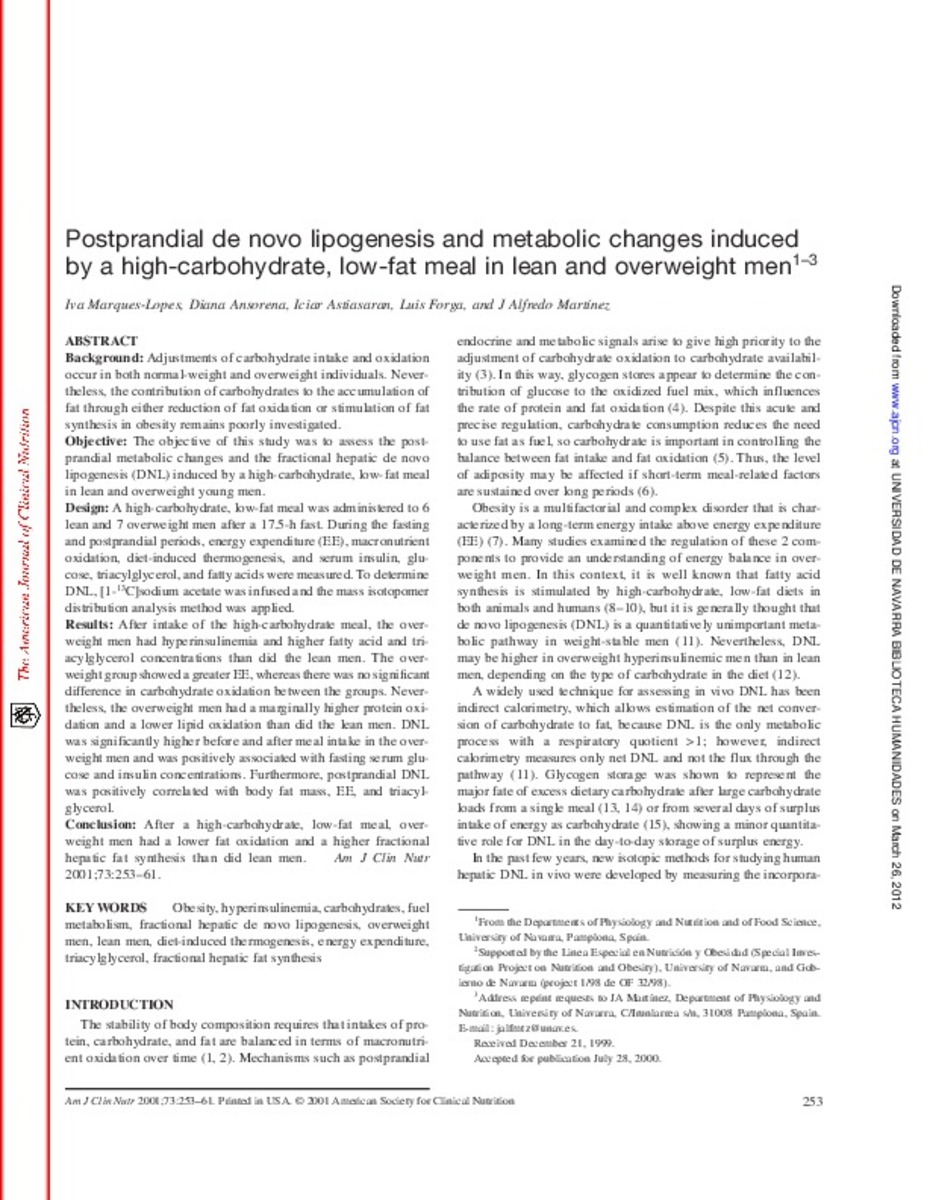Postprandial de novo lipogenesis and metabolic changes induced by a high-carbohydrate, low-fat meal in lean and overweight men
Palabras clave :
Obesity
Hyperinsulinemia
Fractional hepatic de novo lipogenesis
Carbohydrates
Triacylglycerol
Diet-induced thermogenesis
Fractional hepatic fat synthesis
Fecha de publicación :
2001
Editorial :
American Society of Nutrition
Cita:
Marques-Lopes I, Ansorena D, Astiasaran I, Forga L, Martinez JA. Postprandial de novo lipogenesis and metabolic changes induced by a high-carbohydrate, low-fat meal in lean and overweight men. Am J Clin Nutr. 2001 Feb;73(2):253-61.
Aparece en las colecciones:
Estadísticas e impacto
0 citas en

0 citas en

Los ítems de Dadun están protegidos por copyright, con todos los derechos reservados, a menos que se indique lo contrario.











